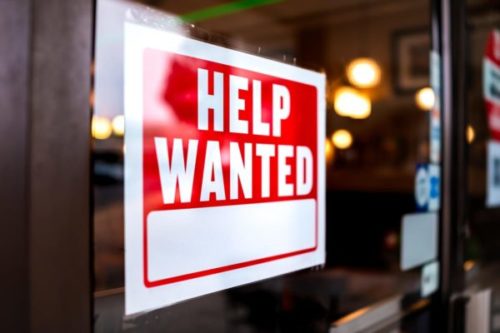There is a labour shortage in Canada right now.
Lots of people can’t believe it. Many expected there to be fierce competition for jobs after the pandemic. When companies eliminated jobs, many people expected that jobs would come back and people would return to work.
But that hasn’t happened. The jobs have come back, but people aren’t flocking to them like many thought they would.
Work with Tim to navigate the current labour shortage.
The result is a labour shortage. Most companies report fewer job applications than ever before and struggle to find people to fill their open jobs. With unemployment in Canada being around 7%, you’d think that companies wouldn’t be having trouble getting applicants!
Here are five reasons why people haven’t been flooding employers with job applications.
Government Benefits
The most commonly cited reason for people not flocking back to jobs is that some government benefits make it more beneficial to stay home.
The temptation is to label everyone taking these benefits and not returning to work as “lazy.” But, consider it from the perspective of some of the industries experiencing a labour shortage.
For instance, workers in the restaurant industry have faced multiple closures and re-opening. In many jurisdictions, restaurants have been re-opened only then be closed again on short notice.
With so much uncertainty in their industry, it makes more sense to many restaurant workers to collect benefits until things are more certain in their industry and they re-open for good.
Another temptation with government benefits is to assume that this is the only or most significant reason people aren’t applying for jobs. Government benefits are an easy explanation, but they aren’t the only reason for the labour shortage.
Early Retirement
When layoffs began happening at the beginning of the pandemic, many people in affected industries took advantage of the opportunity to receive an early retirement package.
Meanwhile, in the United States, 3-million Americans took an early retirement package.
Those who did are highly unlikely to ever return to the workforce, lowering the number of people likely to submit a job application.
In Canada, the pandemic also forced many considering retirement to push back their plans due to the financial uncertainty meaning fewer people retired than may have otherwise. However, the fact remains that those who took early retirement reduced the size of our workforce.
It’s created open jobs that have been tough to fill.
Those who took early retirement also don’t contribute to the high unemployment number, so it doesn’t fully explain why unemployment is 7%. That said, if they had not retired, there would be fewer open jobs filled by them or more people looking for work at this time submitting applications.
The Rise in Freelancing
A previous blog talked about freelancing being on the rise before the pandemic began. With the pandemic causing people to consider what they value, more people are shifting to freelancing or entrepreneurialism.
Freelancing has never been easier or more accessible to people with more ways to get your message out than ever before. The labour shortage will also force companies to hire more freelancers when they can’t find applicants.
While freelancers don’t contribute to the high unemployment rate of 7%, they would otherwise be filling jobs that are currently going unfilled.
Pandemic-Related Working Conditions
People are also waiting to see what companies will adopt as official policy around remote work and mandatory vaccinations before applying for a job or resigning from their current role.
With remote work, some people want to be remote full-time, in the office full-time, have a hybrid model, or be given the freedom to do whatever they want.
Some don’t want to get the vaccine with mandatory vaccinations, and others only want to work where vaccines are required.
Both are causing people to wait and see what companies choose to do before they apply or resign from their current positions.
Values, Purpose, and Vision
Anecdotally, this is one of the biggest reasons I hear why people are not applying for jobs. People sit on the sidelines because they want to feel valued at a company that offers them a purpose and a vision.
People are holding out for opportunities that can offer this to them. Companies should always be looking to find ways to let their people know they value their contributions. Also, it would be best if you empowered them with a purpose backed by your vision.
That purpose or vision also can’t just be about money.
People crave being part of something bigger than themselves. Companies that can give it to them are seeing more applications than other companies.
While these five reasons aren’t an exhaustive list of why there is a labour shortage in Canada, they are some major ones that I’ve heard a lot about either in data or anecdotally.
If you are an employer trying to navigate the labour shortage, I’d be happy to help!
- How to Negotiate a Pay Raise - April 16, 2024
- When to Reach Out to a Recruiter - April 9, 2024
- More Essentials for Terminating an Employee - April 2, 2024

